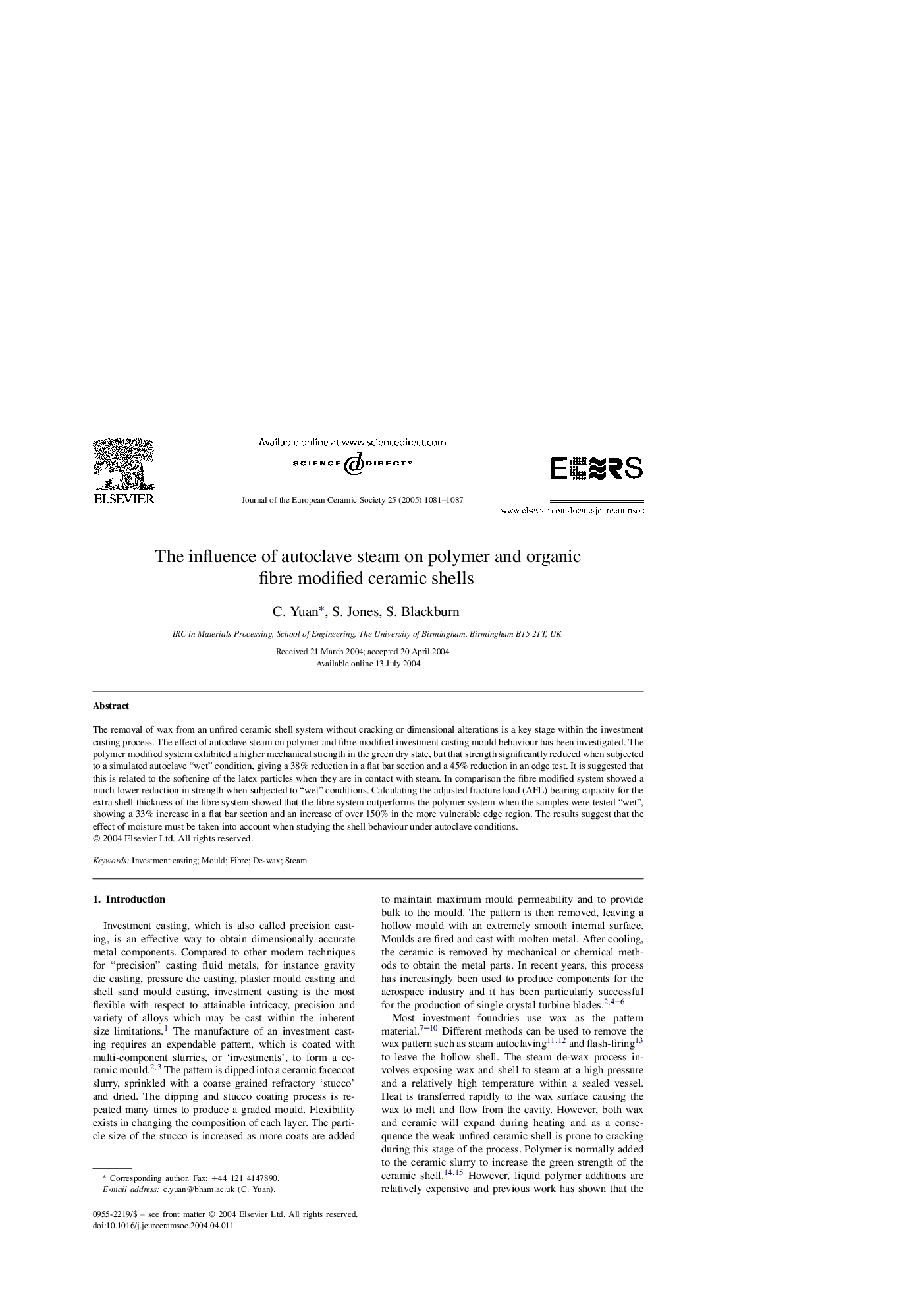| Article ID | Journal | Published Year | Pages | File Type |
|---|---|---|---|---|
| 10629803 | Journal of the European Ceramic Society | 2005 | 7 Pages |
Abstract
The removal of wax from an unfired ceramic shell system without cracking or dimensional alterations is a key stage within the investment casting process. The effect of autoclave steam on polymer and fibre modified investment casting mould behaviour has been investigated. The polymer modified system exhibited a higher mechanical strength in the green dry state, but that strength significantly reduced when subjected to a simulated autoclave “wet” condition, giving a 38% reduction in a flat bar section and a 45% reduction in an edge test. It is suggested that this is related to the softening of the latex particles when they are in contact with steam. In comparison the fibre modified system showed a much lower reduction in strength when subjected to “wet” conditions. Calculating the adjusted fracture load (AFL) bearing capacity for the extra shell thickness of the fibre system showed that the fibre system outperforms the polymer system when the samples were tested “wet”, showing a 33% increase in a flat bar section and an increase of over 150% in the more vulnerable edge region. The results suggest that the effect of moisture must be taken into account when studying the shell behaviour under autoclave conditions.
Keywords
Related Topics
Physical Sciences and Engineering
Materials Science
Ceramics and Composites
Authors
C. Yuan, S. Jones, S. Blackburn,
